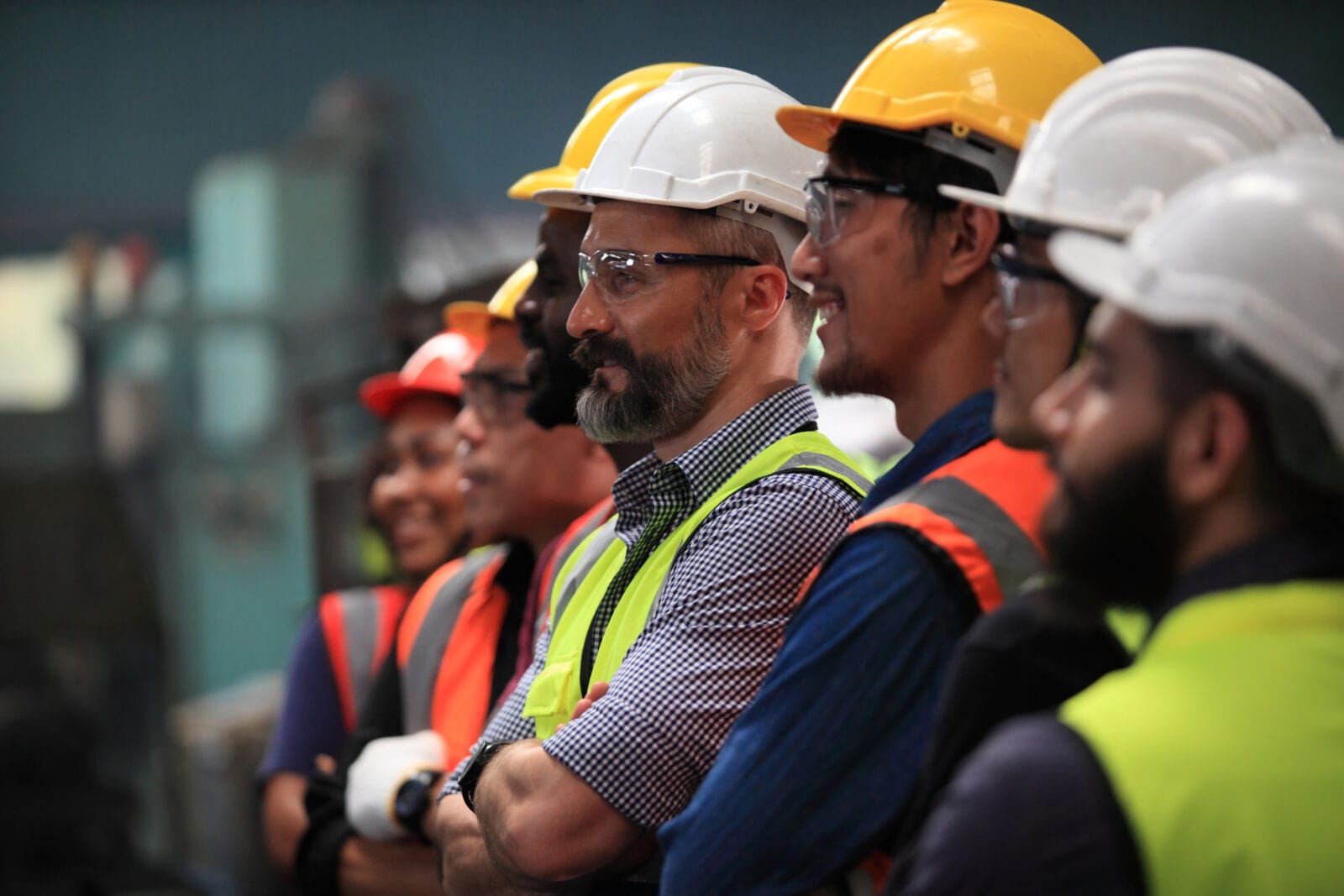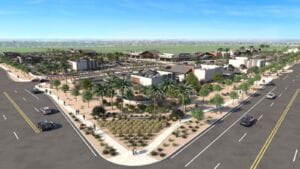Construction is a vast industry full of highly skilled individuals, each having their own specialty and focus. When these professionals work together, the resulting projects add value to the community, create new jobs and grow Arizona’s economy. Cultivating solidarity in a competitive market comes with challenges, but the Arizona Builders Alliance (ABA) has successfully created a space for over 380 commercial construction companies to collaborate, learn and promote the industry’s interests.
While those three elements are the core pillars of the organization, Kim Davids, president and CEO of the ABA, explains that some of the benefits members enjoy can be difficult to quantify.
“As a former general contractor myself, the value of the ABA was always based on the intangibles,” she continues. “I can say we educate and advocate on behalf of the industry, but people underestimate the other factors that are harder to see.”
For example, Davids points out that members who attend the association’s courses not only learn more about a particular topic but also establish bonds with other professionals.
“The purpose of the ABA isn’t to find work or get that next project,” she says. “It’s about broadening your horizons by networking with people who want to help each other grow. That translates to stronger companies and better leaders.”
ABA: Better together
While the ABA is focused on commercial construction, membership is open to any general contractor or subcontractor that does work within Arizona regardless of union status. Businesses that support the industry, such as insurance providers, suppliers or bankers, are also welcome to join.
Derek Wright, president and CEO of Suntec Concrete, notes that being part of a statewide organization allows members to tap into resources, relationships and insights that would be difficult to access otherwise.
“It broadens your perspective beyond your local market and connects you to what’s happening across Arizona,” he continues. “You’re part of the conversations that shape policies and priorities impacting our industry. And through networking, education and collective advocacy, your company is better positioned to adapt, grow and lead.”
Which bills become law have serious implications, especially those concerning permitting, zoning, workforce development and safety standards. By not concentrating on a single region, the ABA can gather feedback from all corners of the state to better represent the industry’s stance on these issues.
Wright adds that the opportunity to speak with lawmakers is a boon to all who work in construction.
“Staying engaged in the legislative process allows us not only to avoid unintended consequences, but also to help shape policies that drive growth, support a strong workforce, and contribute to Arizona’s long-term economic success,” he continues.
Another benefit of the association’s broad membership is having the chance to hear how other companies approach problems across Arizona, according to Brad Llyod, vice president of Lloyd Construction.
“I’ve been doing this my whole life, and you’d think I’d know everything about construction by now — but I don’t,” he continues. “Every time I go to an ABA meeting, I learn how other companies are building things differently than we are — and sometimes they’re doing it better. Sure, we’re all competitors, but we have a relationship where we’re truthfully looking out for each other. It’s something I haven’t seen anywhere else.”
READ MORE: How Arizona data center construction will explode with AI adoption
After Lloyd’s father — the founder of Lloyd Construction — passed away, the ABA created the Bill Lloyd Scholarship for engineering students attending his alma mater, the University of Arizona.
“Our competition did that out of respect for my father,” Lloyd says. “That’s the type of people who are in this group.”
While members may be bidding on the same jobs, Wright explains that many of the challenges companies encounter — whether they be legislative, operational or otherwise — affect the entire industry.
“The ABA creates a space for us to come together, share ideas and raise the bar across the board,” he continues. “When we work together, we strengthen the entire construction community, and that benefits everyone.”
Paying it forward
While participation in the ABA provides avenues for members to speak out on policy issues and grow professionally, the association is also a way for folks to volunteer their time and talents. Wright says that when he first joined 13 years ago, he saw his involvement mainly as a way to connect with others in the industry.
“[It] quickly became something much more meaningful,” he continues. “It’s a community of peers I respect, a source of continuous learning and a strong voice for our industry. Above all, it’s given me the opportunity to give back to an industry that has shaped both my career and Suntec’s success.”
Running a company is a high-stakes job that requires long hours and dedication. But even with a packed schedule, Wright lends his expertise to the ABA — even serving as board chair in 2023. In that position, he and others sought to strengthen apprenticeship programs and expand outreach efforts to the next generation of builders.
“Leadership in the industry is an investment in the future of construction, and long-term success of every company building in Arizona. The challenges we face, from labor shortages to workforce development and infrastructure, require a collective effort,” he continues. “Taking on a leadership role with the ABA is one way I can contribute beyond Suntec to help ensure our industry stays strong, competitive and positioned for future growth.”
The ABA also organizes service projects so members can help those in need. Lloyd has volunteered for multiple initiatives, noting that some have reached upwards of $250,000 in donated labor and materials.
“When these opportunities are brought up in meetings, people jump at the chance to get involved — and not because it will benefit them,” he says. “You don’t do this kind of work thinking it will lead to the next job. We just want to have a positive impact on the community.”
Davids concludes that as people advance in their careers, the desire to invest in others often grows.
“At the ABA, we focus on giving back, whether it’s through community service, volunteering to be an instructor or helping lead our events,” she concludes. “Yes, we want to make people better leaders and support the industry, but it’s also about paying it forward.”




